Faculty Advisors
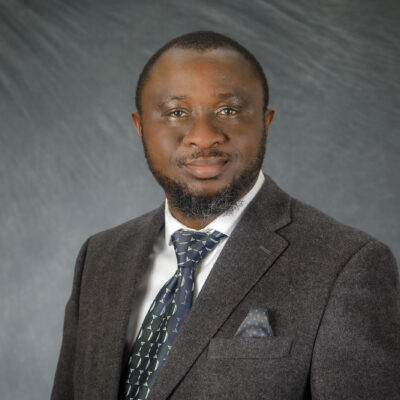
Dr. Akinbode Adedeji
Dr. Akinbode Adedeji is an Associate Professor in the Department of Biosystems and Agricultural Engineering at the University of Kentucky. He has over 23 years of experience as a food process engineer, working in the areas of nondestructive testing of foods applying AI technologies and food sustainability. Some of his current research focuses on food waste upcycling and valorization – especially waste from bourbon distilling and utilization of less energy-intensive crops (proso millet) and processes (extrusion) to produce highly nutritious foods. Dr. Adedeji is a Carnegie Fellow and recipient of several national and international awards – e.g. John Clark Award by the Canadian Society of Bioengineering and UK College of Education award for ‘Teacher that makes a Difference’. He collaborates across international borders having worked as a researcher in four different countries (Canada, France, Nigeria, and USA) and three continents. He has published over 100 peer-reviewed articles mostly in Q1 journals, extension papers, book chapters, and conference proceeding papers. He is part of the Hemp Working group at UK and serves his professional associations in different leadership capacities. He brings a wealth of experience and perspective to the NRT to teach, mentor graduate students, and lead research that addresses issues around the nexus of food, energy, and water. He loves to travel for sight-seeing, sings in his church choir and he is a family man, married and blessed with two children.
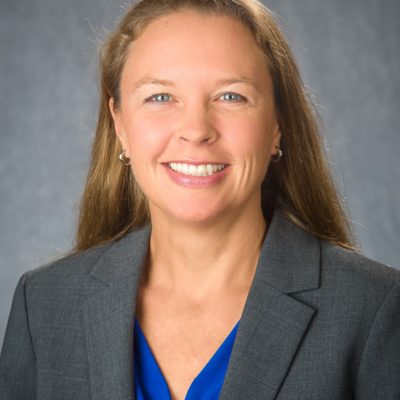
Dr. Carmen Agouridis
Dr. Carmen Agouridis is the Associate Dean for Instruction in the College of Agriculture, Food and Environment and an Extension Associate Professor of Ecosystem Protection and Restoration in the Department of Biosystems and Agricultural Engineering (BAE) at the University of Kentucky. Dr. Agouridis’s research focuses on using applied research to address current issues in the natural resource management, particularly restoration of water systems impacted by agricultural, urban, or mining activities. Her research examines methods to improve instream water quality through novel stream restoration techniques, stormwater management using low-impact development techniques such as rain gardens and stormwater wetlands, and evaluating the influence of the forestry reclamation approach on hydrology and water quality of mined lands. Dr. Agouridis is a member of the National Academies of Science, Engineering, and Medicine’s Committee on Earth Resources was formerly director of the Stream and Watershed Graduate Certificate, co-director of the Environmental Engineering Undergraduate Certificate, and co-director of the Greenhouse Environment and Sustainability Residential College. She has served as principal or co-principal investigator on over $9.4 million in grants, authored nearly 50 refereed publications and over 30 extension publications, and advised over 30 undergraduate and graduate research projects. Dr. Agouridis received the American Society of Biological and Agricultural Engineers’ 2014 A.W. Farrall Young Educator Award. She is a certified professional engineer in Kentucky. Dr. Agouridis holds a B.S. in agricultural engineering and an M.S. in agricultural and biosystems engineering from the University of Tennessee. She holds a Master’s in public policy, Master’s in business administration, and Ph.D. in biosystems and agricultural engineering from the University of Kentucky.
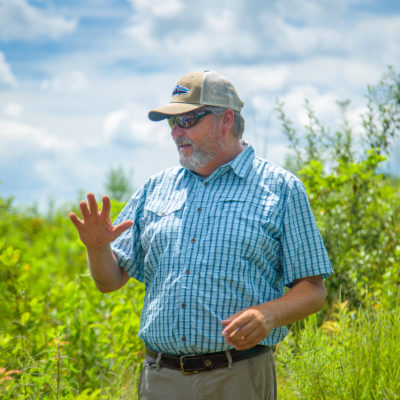
Dr. Christopher D. Barton
Dr. Christopher D. Barton is a Professor of Forest Hydrology and Watershed Management in the Department of Forestry and Natural Resources at the University of Kentucky. He is currently working in the areas of ecosystem restoration, reforestation and remediation primarily in streams, wetlands and mined lands. In addition, improved methods for preventing water quality degradation from land-use activities are being examined. Dr. Barton is an Associate Editor for the International Journal of Phytoremediation and the International Journal of Mining, Reclamation and Environment. Dr. Barton is also the founder and President of Green Forests Work, a program to improve the environment and economy of mined landscapes. Through this program, nearly 3 million trees have been planted on mine lands in Appalachia and Australia and over 20,000 volunteers have participated. Dr. Barton was the recipient of several State and National awards including: Kentucky Department of Environmental Protection’s 2018 Environmental Excellence Award for Resource Caretaker; the American Society of Mining and Reclamation’s 2015 Researcher of the Year Award; and the 2014 United States Environmental Protection Agencies – Scientific and Technological Achievement Award. For more information visit: www.greenforestswork.org and www.facebook.com/Greenforestswork
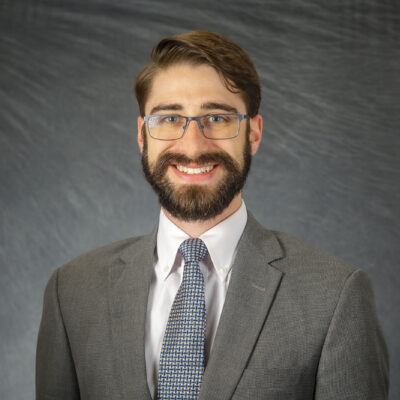
Dr. Tyler Barzee
Dr. Tyler Barzee is an Assistant Professor in the Department of Biosystems and Agricultural Engineering at the University of Kentucky. He obtained his B.S. in Biosystems Engineering from Clemson University and M.S. and Ph.D. degrees in Biological Systems Engineering from the University of California Davis. Before joining UK in July 2021, he worked as a postdoctoral scholar at University of California Davis. His research focuses on the applications of bioprocess engineering and fermentation to produce sustainable fuels, food ingredients, fertilizers, and other bioproducts. Current research projects focus on fungal-assisted harvesting of microalgae, anaerobic digestion and upgrading of Bourbon Distillers Spent Grains, and production of alternative protein and other food products from filamentous fungi. In his spare time, he enjoys cooking, traveling, studying classical guitar, playing with his two cats, and hiking.
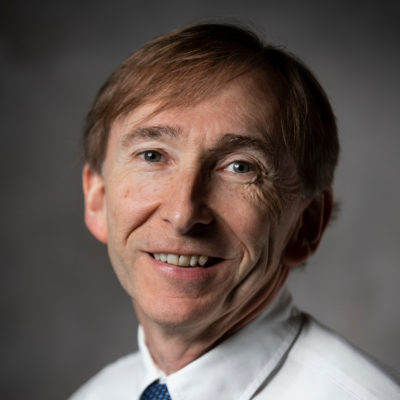
Dr. Mark Crocker
Dr. Mark Crocker is an Associate Director at the UK Center for Applied Energy Research and a Professor in the UK Department of Chemistry. Dr. Crocker received BSc. and Ph.D. degrees in chemistry from the University of Bristol in the United Kingdom, and spent two years as a NATO Research Fellow at the University of Wisconsin-Madison. Subsequently, he spent 15 years working in industry, first for Shell Research in Amsterdam and then for Degussa’s automotive catalyst division in Michigan, USA. In 2003 he moved to the University of Kentucky where he leads a research group focusing on CO2 recycling using microalgae, biofuels and environmental catalysis. His personal interests include travel, music and hiking.
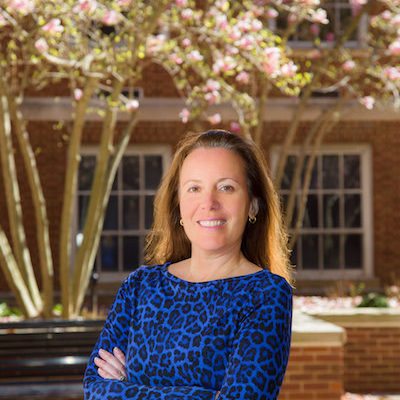
Dr. Isabel Escobar
Dr.Isabel Escobar is a Professor in the Department of Chemical and Materials Engineering at the University of Kentucky. Dr. Escobar’s research focuses on developing and/or improving polymeric membrane materials for water treatment and water reuse operations within the food, energy and water nexus. In the field of membrane separations, she has been the PI of numerous membrane research projects. In 2009, Escobar became the Associate Editor of Environmental Progress and Sustainable Energy Journal, a quarterly publication of the American Institute of Chemical Engineers (AIChE). In 2011, she received the AIChE Separations Division FRI/John G. Kunesh Award. Isabel Escobar and her research group have published over 75 articles in peer-reviewed journals, have made nearly 200 presentations at national/international conferences, and edited two books. In September of 2015, Escobar gave a TEDx talk on Worldwide Water Issues and has numerous media appearances. On her free time, she runs marathons for fun.
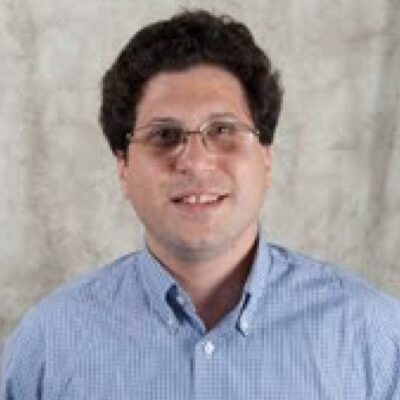
Dr. Marcelo Guzman
Dr. Marcelo Guzman is an Associate Professor of Chemistry in the University of Kentucky (UK), where he usually teaches environmental chemistry and analytical chemistry courses. He is originally from Argentina, where he completed undergraduate studies in Chemistry. He earned M.S. and Ph.D. degrees in Environmental Science and Engineering at Caltech. For his postdoctoral training he joined the Environmental Chemistry group at Harvard University. He is the recipient of a 2013 National Science Foundation CAREER Award, a 2016 American Chemical Society Young Academic Investigators Awardee in Organic Chemistry, and the 2020 Outstanding Graduate Student Mentoring Award from the UK College of Arts and Sciences. Among other journals, he is a member of the Editorial Board of Atmosphere and the International Journal of Environmental Research and Public Health. His current research and collaboration interests span from applications of environmental photocatalytic processes for the removal of pollutants and the production of fuels, the study of heterogeneous oxidations of combustion and biomass burning emissions, and the use of integrated unmanned aerial systems for environmental monitoring of trace gases.
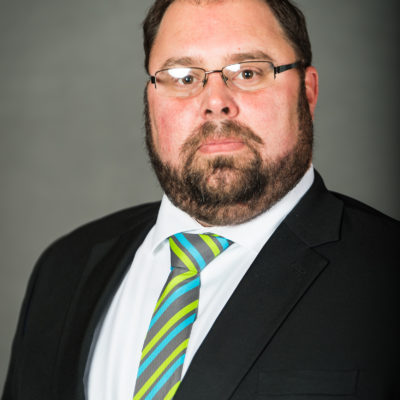
Dr. Tyler B. Mark
Dr. Tyler B. Mark is an Associate Professor of Production Economics in the Department of Agricultural Economics at the University of Kentucky. Originally, from Kentucky, he completed his undergraduate at the University of Kentucky, MS at Purdue University, and Ph.D. at Louisiana State University. Prior to returning to the University of Kentucky in January 2014, he worked at Morehead State University for three and a half years. His applied research interests include digital agriculture, simulation methods, broadband availability in rural areas, precision agriculture, precision dairy, dairy policy, renewable energy feedstocks, and hemp economics. Dr. Mark’s research group is developing a local, regional, nationally, and internationally known research program that is grounded in an interdisciplinary approach. Future goals include continuing to develop research collaborations, refining the groups’ interdisciplinary approach and mentoring of future students. His interests include travel, golf, and spending time with family.
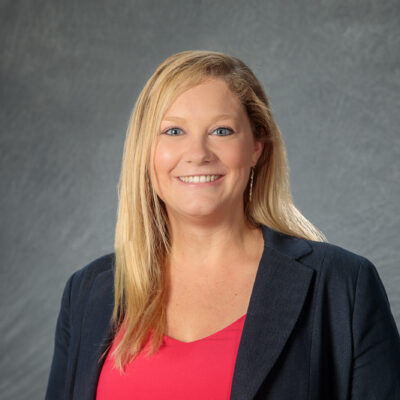
Dr. Tiffany Messer
Dr. Tiffany Messer joined the Biosystems and Agricultural Engineering Department at the University of Kentucky in October 2020. She holds degrees in Biosystems and Agricultural Engineering (University of Kentucky, B.S., 2008) and Biological and Agricultural Engineering (North Carolina State University, M.S. 2010, PhD, 2015). Additionally, Tiffany completed a postdoctoral appointment in the Nicholas School of the Environment at Duke University (2015-2016) to focus on ecological designs and analytical chemistry. Along with being awarded over $3.5 million as a PI or co-PI in grant funding, she has received the USDA AFRI NIFA Postdoctoral (2016) and the EPA STAR (2012-2015) fellowships. Her research interests reside at the intersection of engineering, ecology, and agriculture with an emphasis on environmental biogeochemistry and water resources in human impacted ecosystems. She works specifically on identifying, tracing, and treating nutrients and emerging contaminants using ecological engineered designs (i.e., wetlands, streams, stormwater control measures). In her free time, Tiffany enjoys spending time with her family, art projects, and traveling.
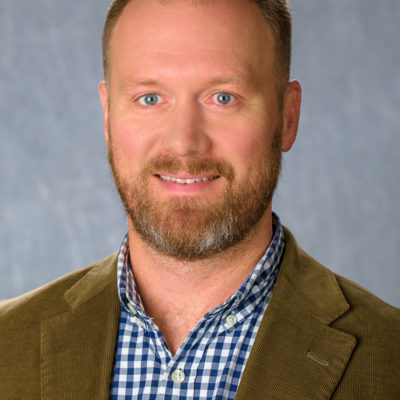
Dr. Luke Moe
Dr. Luke Moe is an Associate Professor in the Department of Plant & Soil Sciences at the University of Kentucky. He obtained a BS in Biochemistry from Washington State University, and a PhD in Biochemistry from the University of Wisconsin-Madison. After doing postdoctoral work in Chemistry (Bates College) and Plant Pathology/Bacteriology (University of Wisconsin-Madison), he joined the University of Kentucky in 2009. Research in the Moe laboratory is broadly focused on environmental microbiology, with special interests in the ecology, genetics, and biochemistry of microbes in soil and associated with plants. Current research projects are focused on the role of microbes in carcinogen formation in tobacco and tobacco products, the genetics and biochemistry of model soil-dwelling bacteria, and the bacterial ecology of fermentation. Outside of the lab, Dr. Moe enjoys outdoor activities, reading, and traveling.

Dr. Eduardo Santillan-Jimenez
Dr. Eduardo Santillan-Jimenez is a Research Program Manager at the UK Center for Applied Energy Research (CAER) and an Adjunct Assistant Professor at the UK Department of Chemistry. Originally from Mexico, Dr. Santillan-Jimenez joined UK first as an undergraduate research intern and then as a graduate student performing his doctoral research at UK CAER and at the University of Alicante (Spain). After obtaining his Ph.D. in 2008, he worked as a postdoctoral fellow at Utrecht University (The Netherlands) prior to retuning to UK. His current research focuses on the application of heterogeneous catalysis to the production of renewable fuels and chemicals – with emphasis on the upgrading of biomass-derived fats, oils and greases (FOG) to drop-in hydrocarbon fuels – while his synergistic activities include a number of K-20 initiatives designed to enhance and broaden STEM education. His personal interests include things ranging from art and finance to traveling and weightlifting.
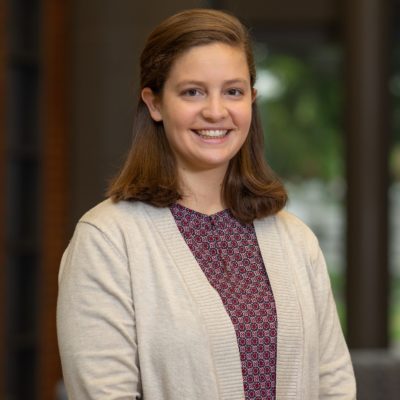
Dr. Diana Byrne
Dr. Diana Byrne is an Assistant Professor in the Department of Civil Engineering at the University of Kentucky. She is originally from Kansas City, Missouri and received her bachelor’s degree in Civil Engineering at Saint Louis University. Then, she received her Master’s in Civil Engineering and Ph.D. in Environmental Engineering in the Department of Civil and Environmental Engineering at the University of Illinois at Urbana-Champaign. Her research focuses on applying and adapting quantitative sustainable design tools such as life cycle assessment and quantitative microbial risk assessment to guide decision-making for water and sanitation infrastructure. She is interested in applications of sustainable design in both technologically advanced and resource-limited settings, with an emphasis on context-specific objectives and constraints. Ultimately, she is interested in combining her interests in engineering and service to solve problems that have meaningful impacts for people and the environment. In her free time, she is passionate about social justice and enjoys spending time outdoors, exploring Lexington, and spending time with her family and energetic puppy.
